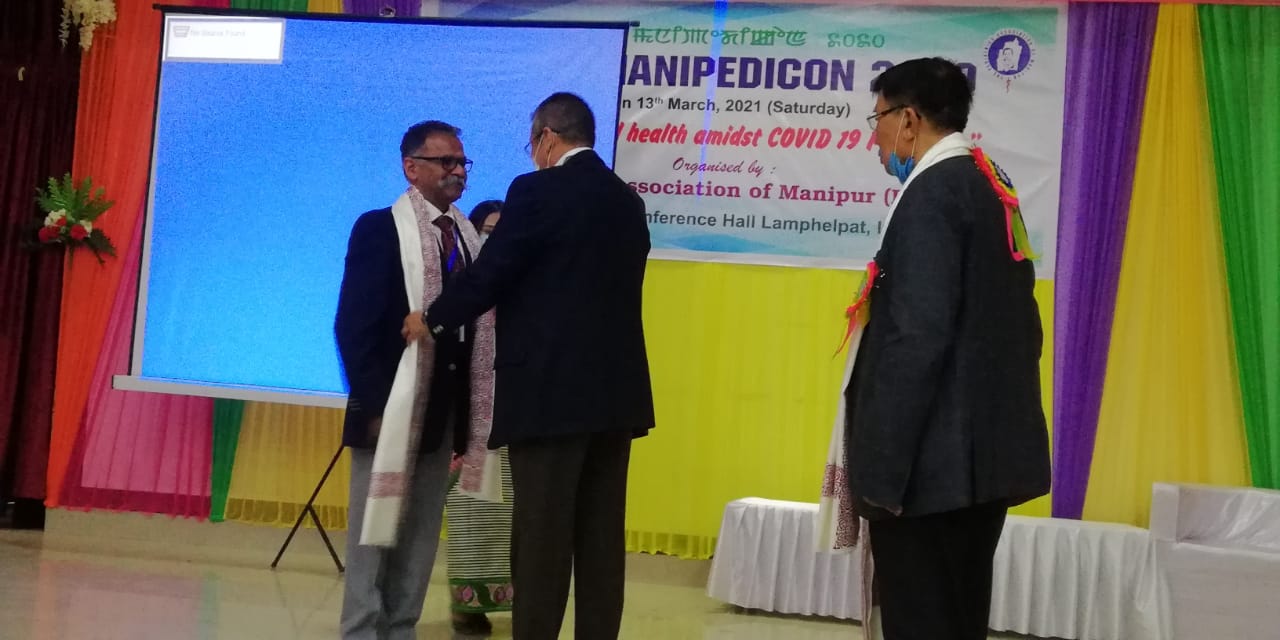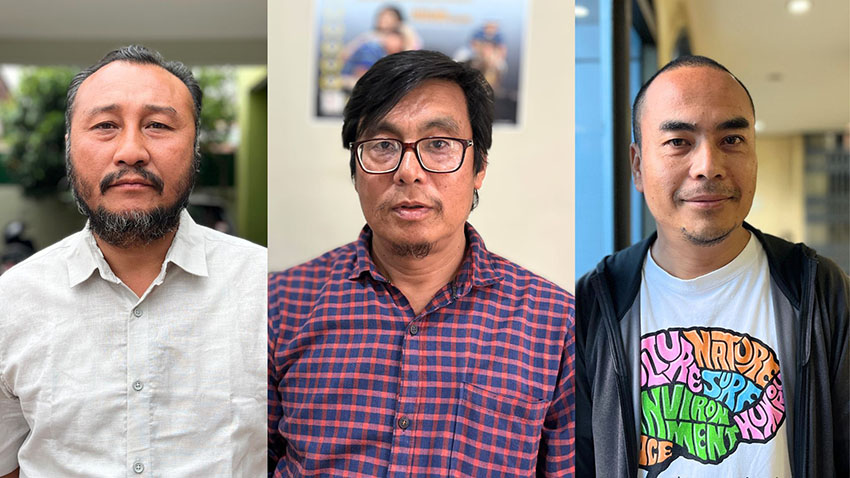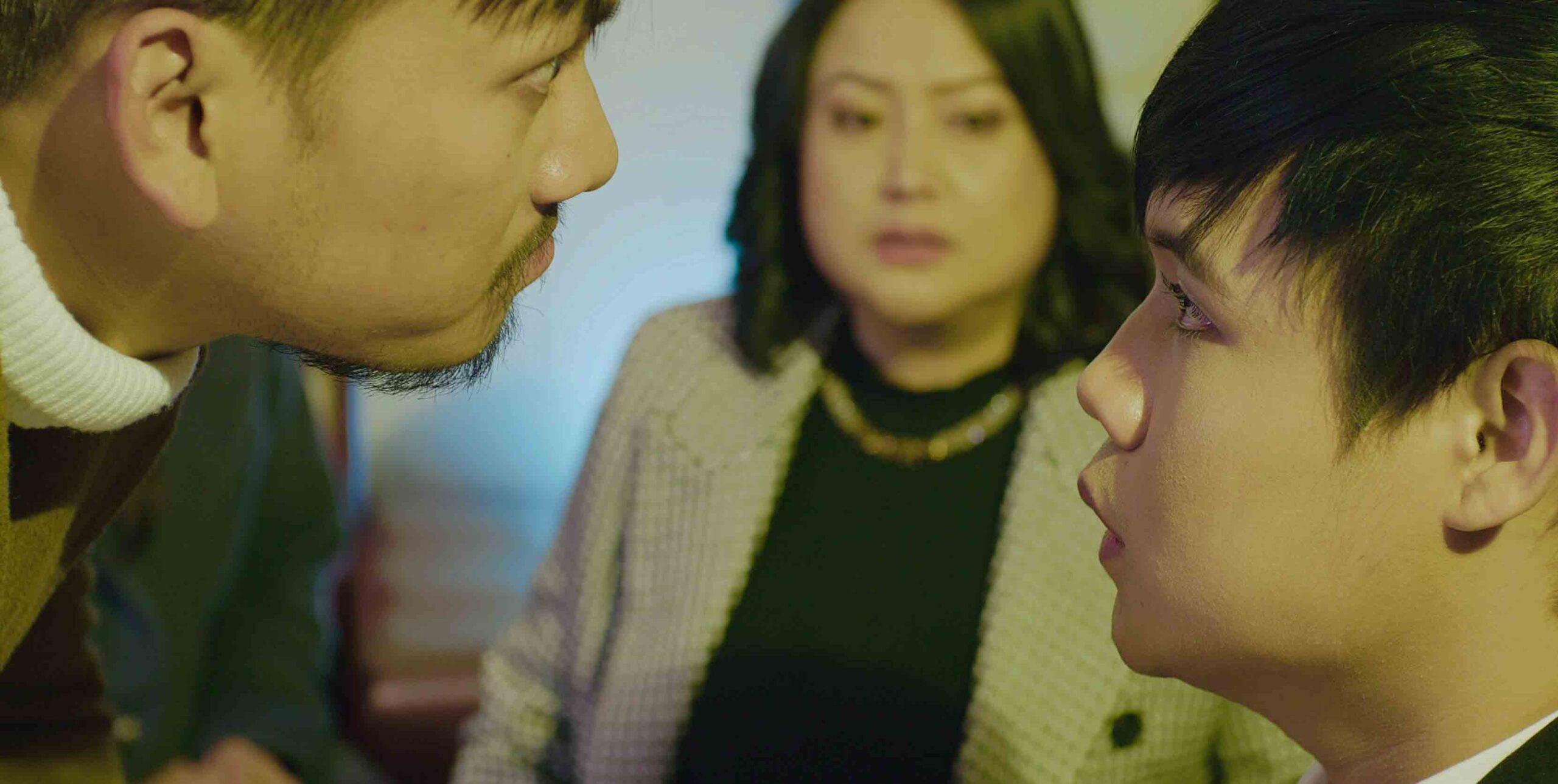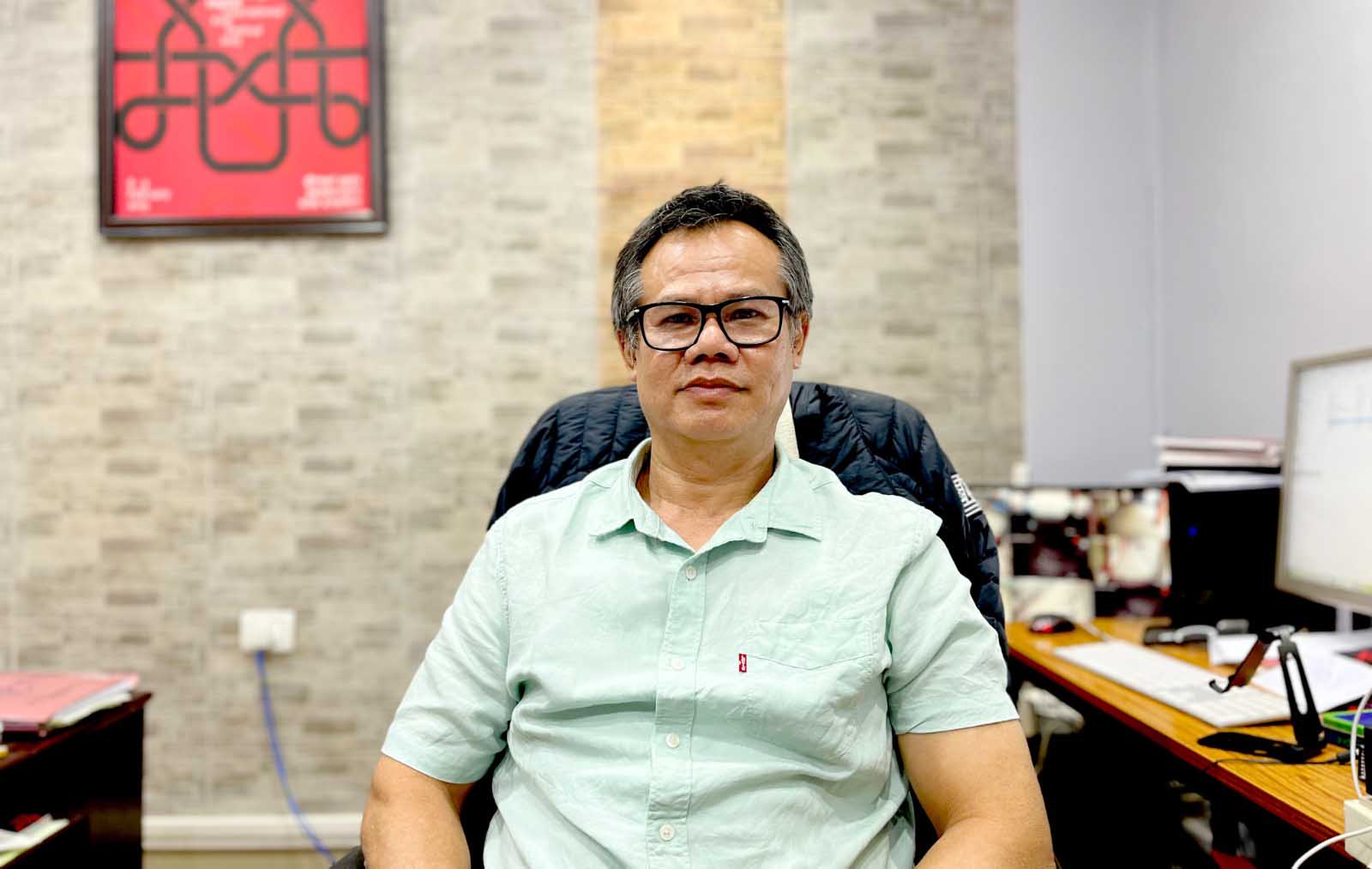The XXIVth MANIPEDICON 2020, a conclave of paediatricians held last Saturday at the IMA Conference Hall at Lamphel discussed 24 significant topics on child health, with special focus on the Covid-19 pandemic. Dr. Sanjay Sharma, an alumni of the premier Armed Forces Medical College, gave the Imphal Review some time on the sidelines of the meet to talk to R.K. Lakhi Kant about ‘Gender incongruence in children’ and how children do not enjoy the same care and status common in Manipur till some decades back. Dr. Sanjay Sharma runs his own organisation, the Association for Transgender Health in India and its social arm KHEM, and is connected with other national and international organisations like SAATHI and also others involved in care for the gender incongruent and transgender health.
Before we start with the conversation we’ll give some background to who really are the gender incongruent children and also some statistics and views which will help understand better what exactly is the issue we are face to face with. We came to understand that experience of gender and of ‘Who am I’ comes early in life. But in fact incongruence is actually with the larger majority who cannot accept the gender such a child owns. The child does not communicate and closeting is there by the society, till the psycho-social-sexual development starts taking place and the child which has been hiding the narrative, cannot do so any more when the bodily changes start occurring, for instance during puberty.
The society’s failure to assign gender to the child results in conflicts with parents, neighbours, and at school, and the discomfort stops the child from performing socially in the football team or at home. Intervention is required when you realise internal conflict in the child, and this is important because study says life expectancy in transgender people is as low as 40 years. External conflict includes bullying in the washrooms. We need to talk to family, community, and reconnect with culture, which can be done only when we start talking of the Indian history of gender movement, and in Manipur, Manipur’s history of gender movement. An incongruent child is like someone in an exam who has been given all the difficult questions to answer, and we can relieve the pressure on the child by adopting a public health approach where medical and social aspects are covered. The paediatrician’s role is to listen, not tell, and provide space for gender expression. The idea is to start a dialogue with parents, schools and the society at large. This is vital now because according to a figure given by Mumbai NGO Humsafar, up to 16% of India’s population is LGBTQ. In Manipur also the transgender have a social face and are over 4000 in numbers, while the other sexual identities have not come out publically, except for one person who is an intersex and has come out openly.
Lakhi Kant: How are we supposed to understand the terminology gender incongruence?
Dr. Sanjay: To begin I will like to state that it is a preventable issue, but it requires ownership by people. Your teachers, your parents, your doctors need to know. People with the lived experience need to come forward. The science is recorded and documented. Now, there’s special care that’s required. Once I want to be comfortable then I want to align my mind to my body so that I can enjoy the benefits of science. Tomorrow if they were to have some issues we work with the medicines and we do some corrections. Not because you are diseased, but this is what is available now.
You can enjoy life better then. It’s something we can do. We can give the joy of parenting to couples, any couple, need not be XX chromosomes and XY chromosomes, but anybody who wants progeny to proceed. We can do that. We can allow this person to become a doctor or an engineer. That’s not limited, not got anything to do with gender. But it has definitely everything to do with how we are going to make this person comfortable and part of society.
So it’s a medico-social issue, so the solution has to be medico-social; that means the solution has to come from a public health approach. It’s like control of cholera wherein we had to design a sanitation system; otherwise people were dying because this bacteria was getting into the water. All they did was wash hands and build nice toilets. Corona also has been controlled majorly by public health measures; it’s a learned behaviour.
Lakhi Kant: Since it’s medico-social, does it affect the mind more than the body?
Dr. Sanjay: You can’t separate the mind from the body. Mind rides on all our functions. Right now I’m talking to you. We talk because my mind is converting my thoughts into muscle movements. So I can’t say my talk to you is a physical thing. In fact you have children who, you check with them, they hear well. Check the tongue, the tongue moves well. But they don’t speak. This is how our understanding of the issue becomes. So we help them. And now we are talking of neuro-diversity.
Lakhi Kant: Is it to be considered something like our reaction to autism?
Dr. Sanjay: You have hit the nail on the head. Autism was also first thought to be a disease, but then people realised this is not a disease. This is just a person who is wired like this. Once he is wired like this, if we learn how to communicate with this person, then we understand he needs a little more time to get on; then they will be able to perform better. Autistics do very well in coding. They do very well in anything that requires screen time. In fact a very large part of the diverse people also belong from the autistic spectrum. This is an area where we are working in. It’s a very interesting field.
Lakhi Kant: Do the children have to go through therapy?
Dr. Sanjay: Not therapy, only understanding. Now you saw this child here (pointing to a child at a coffee dispenser)…he saw me doing certain things and he understood I wanted coffee and he came and asked me. This is what children want. This is the response they need. Once you know how their mind works and we move like that, we get to tap the whole potential. There’s no treatment we did. It is just my understanding of the narrative, my trying to match my narrative with them and getting the match for the society.
Lakhi Kant: Basically it’s the relation? How do you speak with them, relate to them?
Dr. Sanjay: Yes, it’s the understanding. You may be in the minority but if I understand that what you are doing is correct, or it is true…lot of times the issues start because people say this is not possible, or this is not part of my religion, or this is not how you behave in society; these are the questions which come up.
But this is very much part of our culture. I think in Manipur we had this system of not gendering a child; a child would be a child. And in fact 30 years back when I was posted in this region, we went to the villages, and we would find children floating around everywhere. They would enter anybody’s house and they were looked after as well as everybody and there were no issues.
Our social system is always very permissive. It is only when we got people from outside who had a very binary kind of a thought process that we had to, you know, accordingly change our view. So we need to reconnect this and make that social change.
Yes, if you need a certain surgery to become comfortable then that is with the doctor. So the doctor needs to understand.
Lakhi Kant: But you can do without a surgery also?
Dr. Sanjay: Up to you.
Lakhi Kant: It is up to the parents, child?
Dr. Sanjay: It is up to the child. We say that child is the leader. If the child says that this is what I want. Firstly, once you start agreeing to the narrative then children become comfortable. But nevertheless if something is bothering…like if I don’t like the shape of my nose, I would say give me a better one. That is possible. But I wouldn’t be telling you, no this is what you want. Then I’ll be trying to shift you from one form to the other. Then again you’ll be uncomfortable.












